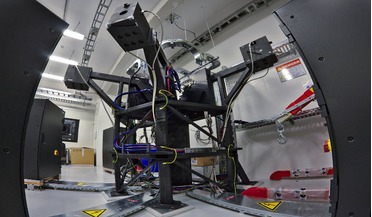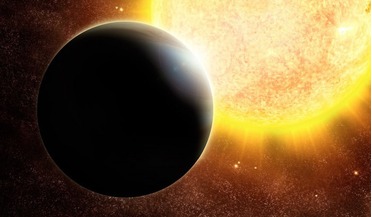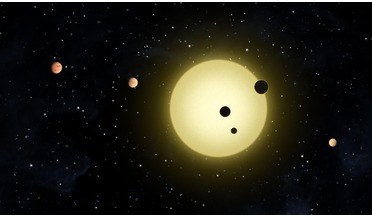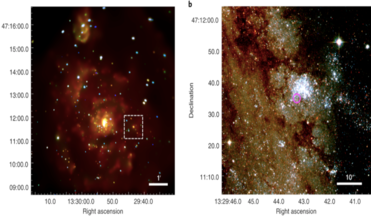 06 December 2017
The next generation planet hunter is here!
06 December 2017
The next generation planet hunter is here!
... rocky planet!” explains lead scientist for ESPRESSO, Francesco Pepe from the University of Geneva in Switzerland. The radial velocity method allows astronomers to measure the mass and orbit of any residing exoplanet and it works by measuring the...
 August 2018
Exoplanet census promises radical discoveries
August 2018
Exoplanet census promises radical discoveries
.... The prevalence of these known short period exoplanets is just a selection effect of transit and Doppler radial velocity methods, because both these methods are much more sensitive to the planets in short period orbits. Another approach is needed...
 February 2016
How to Build Planets
February 2016
How to Build Planets
... its host star’s spectral lines, caused by the planet’s gravitational effects as it orbited the star. This method, known as the radial velocity method, is one of three main ‘indirect’ techniques used to detect planets, the others being the astrometry...
 27 October 2017
Astronomers find system with six planets
27 October 2017
Astronomers find system with six planets
... and 0.38 (compared with Jupiter) respectively. All of the planets were found via the radial-velocity method. This method is often to referred to as the ‘wobble’ method and put (very) basically, it involves looking at the change in light that occurs...
 November 2025
Searching for life beyond Earth
November 2025
Searching for life beyond Earth
.... But the reality is that that kind of planet is still out of reach with our current technology. The radial velocity method to detect exoplanets uses ground-based telescopes to detect the tiny ‘wobbles’ an (unseen) planet induces in its host...
 27 October 2021
Astronomers may have detected the first planet outside of the Milky Way
27 October 2021
Astronomers may have detected the first planet outside of the Milky Way
..., just doesn’t work the same when trying to spot extragalactic exoplanets. The radial-velocity method for finding exoplanets, or wobble method as it is also known by, relies on detecting minute changes in a star’s orbit caused by the gravitational...